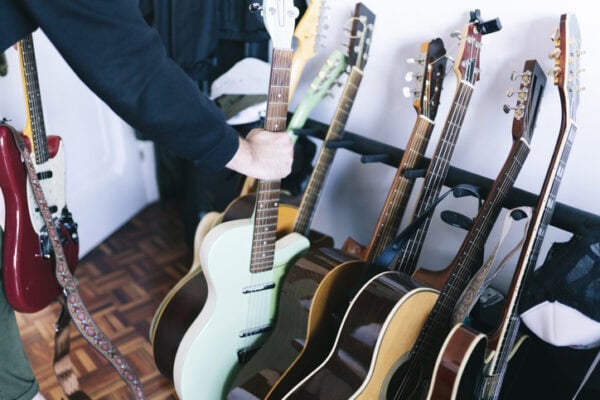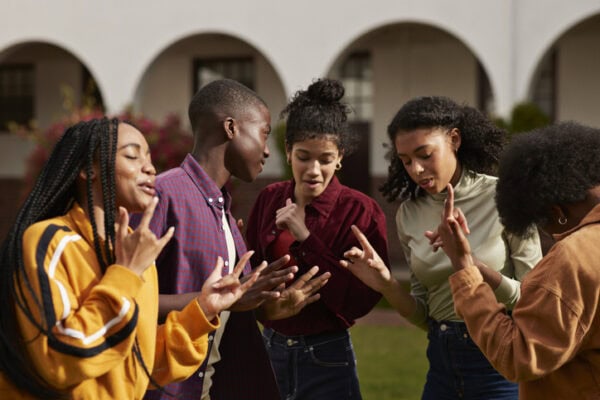NAfME BLOG
Recognizing and Addressing Bias in Repertoire Choices for Music Educators

/ News Posts / Recognizing and Addressing Bias in Repertoire Choices for Music Educators
Recognizing and Addressing Bias in Repertoire Choices for Music Educators
Part Four of a Four-Part Series
By NAfME Member Roque Diaz, Member of the NAfME Equity Committee
Read parts one, two, and three
As music educators, we have the incredible responsibility of selecting repertoire that not only showcases the talents of our students but also reflects the culturally diverse world we live in. However, it’s important to recognize that our personal biases and unawareness can unintentionally influence our choices. To ensure we provide a well-rounded and inclusive curriculum, we must actively work to check our biases. Here are some strategies to help us navigate this process:
- Self-reflection: Start by acknowledging that we all have biases, whether conscious or unconscious. Take the time to reflect on your own preferences and consider how they may impact your repertoire choices. Ask yourself: Am I favoring certain genres, styles, gender, or artists based on my personal background or experiences?
- Expand your sources: Develop your resources and seek out a wide range of perspectives. Look beyond your own cultural background and explore works from different regions, ethnicities, and time periods. Engage with artists and educators from different backgrounds to gain new insights and recommendations.
- Engage in dialogue: Foster open conversations with colleagues, students, and parents about the repertoire choices. Encourage feedback and actively listen to different viewpoints. This collaborative approach will help you gain a more comprehensive understanding of the impact your selections may have on various communities.
- Research and educate yourself: Take the time to research the historical context, cultural significance, and representation within the repertoire you are considering. Understand the stories behind the pieces and their potential impact on different communities. This knowledge will enable you to make more informed decisions.
- Embrace inclusivity: Strive to include a wide range of voices and perspectives in your repertoire. Seek out works created by underrecognized artists, composers, and playwrights. By expanding the voices we showcase, we create a more inclusive and empowering environment for our students.
- Seek external input: Consider consulting with experts, organizations, or cultural institutions that specialize in promoting diversity, equity, inclusion, and access (DEIA) in music education. Their expertise can provide valuable guidance and help ensure that your repertoire choices align with best practices.
- Regularly reassess: Continuously evaluate your repertoire choices and be open to adjusting as needed. As societal norms evolve, so should our curriculum. Stay informed about current conversations surrounding representation in music education to ensure that your choices remain relevant and inclusive.
By recognizing our biases and implementing these strategies, we can create a more inclusive and enriching music education experience for our students. Let’s embrace DEIA, challenge our preconceptions, and empower our students to explore the vast world of artistic expression. Together, we can make a positive impact in shaping the future of music education.
Respectfully,
![]()
About the author:
 Dr. Roque Diaz is a seasoned executive leader with over two decades of experience in education, arts administration, and diversity, equity, and inclusion (DEI) strategy. A first-generation, neurodivergent Puerto Rican, Dr. Diaz brings a deeply personal and systemic approach to advancing equity across sectors.
Dr. Roque Diaz is a seasoned executive leader with over two decades of experience in education, arts administration, and diversity, equity, and inclusion (DEI) strategy. A first-generation, neurodivergent Puerto Rican, Dr. Diaz brings a deeply personal and systemic approach to advancing equity across sectors.
He previously served as the Senior Director of DEI at MacPhail Center for Music, where he led the organization’s equity strategy, integrated DEI into a $25M capital campaign, and secured the largest grant in the institution’s history. He also launched innovative statewide education programs and built partnerships that expanded access to high-quality music education for historically underserved communities.
Dr. Diaz is the Founder of Progressing Forward, LLC, a consulting firm dedicated to inclusive systems change, strategic planning, and capacity building across nonprofits, schools, and arts organizations. His work helps institutions move from transactional DEI efforts to sustainable, equity-driven impact.
A professionally trained trumpeter, Dr. Diaz has performed internationally in orchestral, chamber, jazz, and Latin music settings. His leadership is shaped by a commitment to ensuring that future generations experience more inclusive and culturally responsive environments.
He currently serves on several nonprofit boards and advisory groups focused on arts, education, and social justice, bringing expertise in governance, strategic planning, fundraising, and inclusive leadership.
Interested in reprinting this article? Please review the reprint guidelines.
The National Association for Music Education (NAfME) provides a number of forums for the sharing of information and opinion, including blogs and postings on our website, articles and columns in our magazines and journals, and postings to our Amplify member portal. Unless specifically noted, the views expressed in these media do not necessarily represent the policy or views of the Association, its officers, or its employees.
Published Date
August 14, 2025
Category
- Culturally Relevant Teaching
- Diversity, Equity, Inclusion, and Access (DEIA)
- Repertoire
- Representation
Copyright
August 14, 2025. © National Association for Music Education (NAfME.org)





